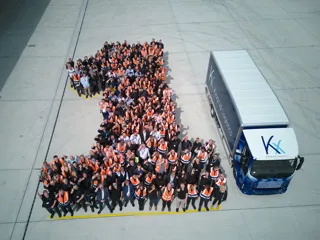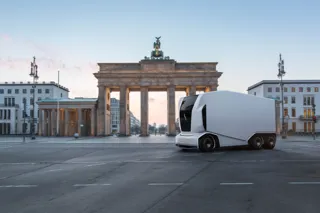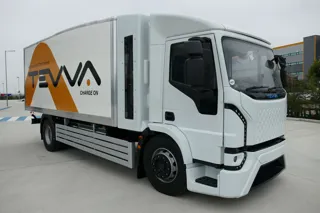A new zero emission road transport leadership commitment, EV100+, has been launched by the Climate Group.
IKEA, Unilever, JSW Steel, A.P. Moller - Maersk and GeoPost/DPDgroup – are the founding members of the initiative, which aims to phase out the heaviest and most polluting vehicles on roads.
Collectively, they have committed to transition their fleet of vehicles of more than 7.5 tonnes, medium and heavy-duty vehicles (MHDVs), to zero emission by 2040 in OECD markets, China and India.
Jean-Claude Sonet, executive vice president in charge of marketing, communication and sustainability at GeoPost/DPDgroup, said: “We are committed to sustainable delivery and have set ourselves a bold ambition to reach net zero by 2040. Yet success will depend on our ability to transition our medium- and heavy-goods vehicles to zero tailpipe emissions by 2040.
"All sectors must work together if society is to be meet global climate goals. We are therefore excited to work alongside other like-minded businesses to send a powerful message to both governments and manufacturers that we believe the future of trucking is zero emission.”
Sandra Roling, director of transport at the Climate Group, added: “We’re very excited to launch EV100+ at this year’s Climate Week NYC.
“It’s a great demonstration of leadership from the founding members. MHDVs represent the final frontier of zero emission road transportation, and EV100+ will tackle the heaviest, most polluting vehicles on our roads around the world."
MHDVs account for 40% of all road transport emissions and a third of total transport fuel use, according to the Climate Group.
The group said MHDVs produced more than 5% of total global CO2 emissions in 2019, which is predicted to increase to more than 11% by 2050 if steps to decarbonise are not taken.
EV100+ builds on the success of Climate Group’s global EV100 initiative launched in 2017, which brings together companies committed to making electric transport the ‘new normal’ by 2030.
In five years, EV100 has expanded to a group of more than 120 businesses, committing more than 5.5 million vehicles to electric by 2030.
Roling added: “We've seen over the last five years how EV100 has acted as a powerful catalyst for change across light-duty vehicle fleets. Now it’s time for EV100+ to drive this change across global MHDV fleets as well - businesses are willing to lead this change.”
























Login to comment
Comments
No comments have been made yet.